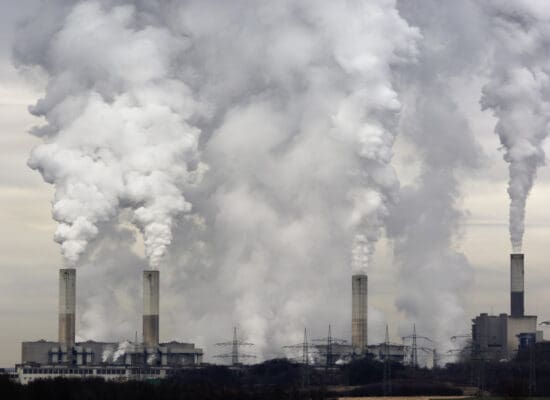Latest just energy transition news
Unions and civil society oppose privatisation of renewable energy in Indonesia
The privatisation of renewable energy, which is being promoted under Indonesia’s Just Energy Transition Partnership (JETP), has been opposed by unions and civil society organisations. Spearheaded by international partners and led by the United States and Japan, the JETP aims for net-zero emissions by 2050 by retiring coal plants and boosting renewables. However, concerns have been raised about the involvement of the World Bank and the promotion of privatisation in the energy sector. Critics fear this could undermine both the green transformation and a just transition for workers, citing failures in attracting private capital and addressing emissions loopholes.
Germany shuts 15 coal-fired power plants as phase-out ramps up
In early April Germany closed 15 coal-fired power plants, with a total capacity of 4.4 gigawatts, as part of its accelerated phase-out plan to meet climate targets under the Paris Agreement. Despite coal declining to 26.1% of the electricity mix in 2023, it remained the country’s second most important energy source of electricity generation. Several of these coal-fired plants were originally scheduled for earlier closure but were kept online due to the European energy crisis following Russia’s war in Ukraine.
Colombian government promotes labour formalisation and just transition in the “Corridor of Life” [press release]
The national government of Colombia and the regional government of Cesar have launched a platform for labour formalisation and just transition in the Corridor of Life, previously known as the Mining Corridor. Comprising five municipalities (Codazzi, Becerril, El Paso, La Jagua de Ibirico, and Chiriguaná) in the northern region of Cesar, the Corridor of Life aims to transition from mining to agriculture, tourism, and sustainable activities. By promoting just under 100 projects, the Colombian government aims to support over 100,000 people who are currently working in the mining sector.
Chilean environmental groups demand compliance with just transition conditions as mines close
Environmental non-profit organisations in Chile have demanded adherence to just transition regulations following the closure of the Norgener 1 and 2 coal plants in Tocopilla, which had a combined capacity of 276 megawatts. While the shutdown marks progress in decarbonisation, concerns have been raised over the absence of evaluated and approved retirement plans, which violates environmental regulations. The organisations are stressing the importance of socially and environmentally responsible closures of coal-fired power plants in Chile, urging the government to oversee compliance to ensure a just energy transition for the affected communities.
Carbon credits for coal phase-out probably not price competitive against wider market, says Climate Impact X chief
Carbon credits for coal phase-out projects in Southeast Asia are projected to surpass USD 30 per tonne, according to the head of the Singapore carbon exchange, Climate Impact X (CIX). This is significantly higher than predicted by earlier studies, which excluded the costs for just transition. As costs for other credits (such as forest protection or renewable energy) are much lower, corporate buyers are unlikely to pay the premium of coal phase-out credits, which will require governments to step in as buyers.
Studies underway to guide Vietnam’s energy transition
During a technical meeting organised by the United Nations Development Programme (UNDP) in Vietnam, a senior expert from the Institute of Energy (IoE) stressed the importance of a comprehensive roadmap to guide the country’s energy transition. The meeting also examined case studies jointly developed by UNDP and IoE to assess transition scenarios for coal-thermal power plants. These discussions underscored the imperative of a just transition that is aligned with global commitments to net-zero emissions and addresses socio-economic impacts effectively.
Indigenous Peoples seek energy transition rights
Representatives from global Indigenous communities have convened ahead of the United Nations Permanent Forum on Indigenous Issues to assert their rights and demands in the renewable energy transition. Issuing a joint statement, they underscored the urgent need for inclusivity and shared prosperity, asserting that Indigenous Peoples must lead renewable energy initiatives for a fair and sustainable transition. With Indigenous lands holding significant renewable energy potential, the statement calls for state divestment from fossil fuels, fair benefit-sharing with companies, and Indigenous involvement in energy project planning and implementation.
The crucial role of South Africa’s faith leaders in advocating for a just transition
In navigating South Africa’s transition to a low-carbon economy, faith voices offer crucial perspectives, urging society to prioritise the moral imperative of ensuring justice for the most vulnerable and preserving environmental stewardship when shaping the country’s energy future. Expressing concerns that the current energy transition may bypass the poorest communities, faith representatives advocate for decentralised energy systems to ensure that profits benefit marginalised groups directly. They also critique governmental decisions that favour costly and polluting energy sources, instead advocating for a shift towards renewable energy and local job creation.
Opinion: Can the Escazú Agreement guarantee a just energy transition in Latin America?
Latin America has in a favourable position to benefit from the green energy transition, but tensions related to lithium extraction and renewable deployment are becoming apparent. The Escazú Agreement promotes environmental democracy, protects the rights of Indigenous and marginalised communities, and strengthens accountability mechanisms, offering a blueprint for just energy transitions in the region. However, in light of slow ratification, its success hinges on political will and the commitment of governments and stakeholders. Fifteen countries that ratified the agreement are therefore gathering in Chile on April 22–24, 2024, to advance its implementation.
Opinion: Industry, not government, is getting in the way of a “just transition” for oil and gas workers
As Canada grapples with transitioning its oil and gas sectors, tensions have risen between industry interests and workers’ welfare. A new book, Unjust Transition: The future for fossil fuel workers, sheds light on the plight of energy workers, in particular the 2019–2020 lock-out at the Co-op Refinery Complex in Regina. Despite industry rhetoric around the protection of workers, concessions from the workforce were extracted, raising questions about the sincerity of support. As political clashes over climate policies deepen, stark divisions over the direction of the sector and the fate of its workers are being unearthed.
Stay Informed and Engaged
Subscribe to the Just Energy Transition in Coal Regions Knowledge Hub Newsletter
Receive updates on just energy transition news, insights, knowledge, and events directly in your inbox.


